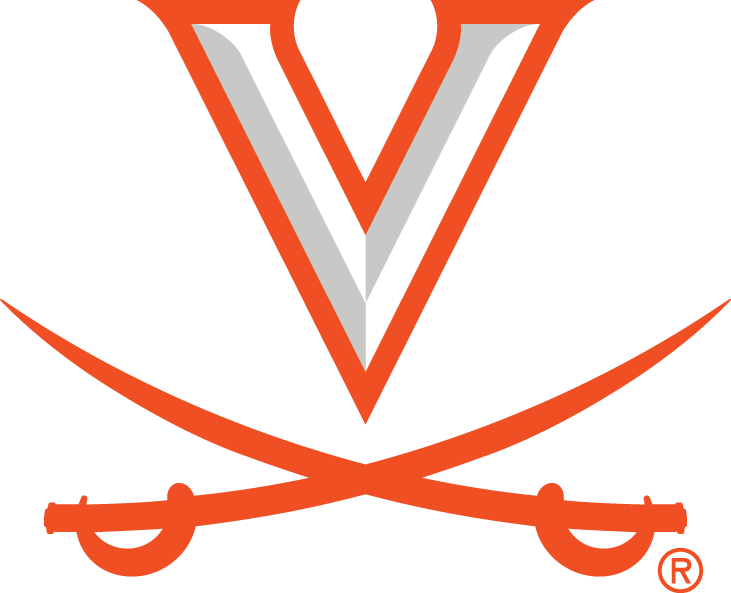By Jeff White (jwhite@virginia.edu)
VirginiaSports.com
CHARLOTTESVILLE, Va. — Take a minute to study the University of Virginia’s 1994 and ’95 football rosters, and it’s not hard to see why those teams were so successful.
In that golden era of UVA football, Hall of Fame coach George Welsh’s standouts included twins Tiki and Rondé Barber, Mike Groh, Jamie Sharper, James Farrior, Germane Crowell, Demetrius Allen, Charles Way, Ryan Kuehl, Randy Neal, Will Brice, Rafael Garcia, Chris Harrison, Tyrone Davis, Mike Frederick, Anthony Poindexter, Percy Ellsworth, Joe Crocker and Patrick Jeffers. And more.
“Both sides of the ball had a lot of talent,” Groh recalled. “There’s a bunch of guys that played a long time in the NFL.”
In 1994, the Cavaliers finished 9-3 after defeating TCU in the Independence Bowl. They posted a 9-4 record in 1995, with another postseason win, this one over Georgia in the Peach Bowl. The ’95 season, of course, also included a historic victory over Florida State. The Seminoles were 29-0 in ACC play before losing to the Wahoos in front of an amped-up sellout crowd on a Thursday night at Scott Stadium.
The quarterback on those teams was Groh, who’d joined the program in 1991 and, after waiting his turn to lead the offense, proved more than capable in that role.
Groh passed for 1,711 yards in 1994 and 2,510 in 1995, when he was named to the All-ACC second team. Three decades later, he remains immersed in the sport. Groh, 53, is heading into his fourth year as the New York Giants’ wide receivers coach and his 14th season overall as an NFL assistant.
He grew up around the sport, so his choice of career wasn’t unexpected.
“Certainly from a younger age I kind of always thought I would be a coach,” Groh said, “so to find myself sitting here 25 years later, am I shocked? No, I’m not shocked by it.”
He didn’t go into coaching immediately after his playing career ended. First, Groh worked for several years as a stockbroker with Davenport & Company LLC in Richmond. It was “a great company with great people,” Groh said, but he missed the competitive nature of football. And so he returned to the sport in 2000 as an offensive assistant with the New York Jets, whose head coach was his father, Al Groh.
Thus began a coaching odyssey that’s taken Mike Groh to Charlottesville, to Tuscaloosa, Ala., to Louisville, Ky., back to Tuscaloosa, to Chicago, to Los Angeles, to Indianapolis and, now, back to the New York metropolitan area.
He lives in Summit, N.J., about 20 miles from Randolph, the Jersey town where his family lived when Al Groh coached the Giants’ linebackers. (The elder Groh also served as New York’s defensive coordinator in 1991.)
The first NFL game Mike Groh attended was at the Meadowlands, where the Giants played, and later, in the summer of 1990, he assisted Bill Belichick, then the team’s defensive coordinator, as a ball boy during training camp.
“So it’s very comfortable to be back here,” said Groh, who starred for Randolph High School. “I always wanted to coach for the Giants, so it’s really cool to be here.”
At UVA, Welsh retired at after the 2000 season, and his successor was Al Groh, who hired Mike Groh as wide receivers coach. The younger Groh later worked with the Wahoos’ quarterbacks before taking over as offensive coordinator before the 2006 season.
Mike Groh’s tenure at his alma mater ended after the 2008 season, when athletic department leaders insisted that his father make staff changes. Al Groh, also a former UVA player, was dismissed as head coach after the 2009 season.
When he reflects on his time coaching at Virginia, Mike Groh said, he remembers “a lot of really good moments. I think that we were building the team the right way. We had the right kind of players. I think you could look at the players that came off of those teams that we had a chance to recruit, and they would match up very favorably with the teams that I played on with Coach Welsh, in terms of their talent. I got a chance to be a part of a lot of young men’s lives, and a lot of those guys are in coaching now, and I think that’s a testament to the experience that they had when they were playing for us.
“Wish we’d won a few more games there. I’m certainly not the coach now that I was then. So I’ve come a long way in my progression as a coach. But when you look back on it, UVA is still a very special place to me, and I’m really focused more on the good than any of the bad. There were a lot of positive experiences that I can take from it.”
